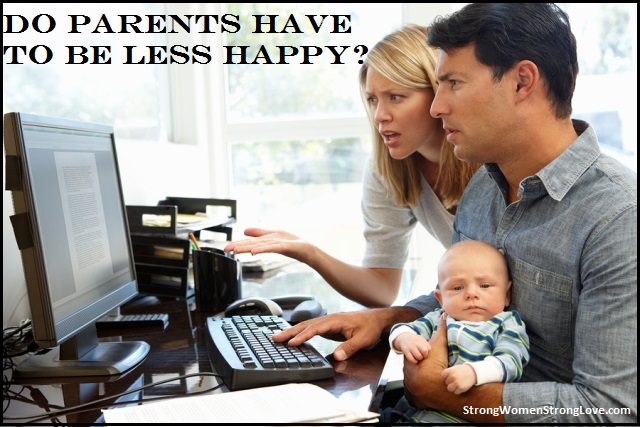by Strong Women Strong Love | Jul 19, 2020 | In the News, Parenthood, Persistent Pressures |
Are you struggling because your work situation has changed dramatically with COVID-19? If you’re home with your spouse and kids during this pandemic, you’re not alone.
The Struggle is Real
So many parents working from home, especially those with elementary-age kids, are worn out. Without childcare or summer camp, home has become a pressure cooker of stress for lots of people.
Those with older kids face different challenges. Adolescents, especially, may be frustrated with limits on social contact with friends and challenge rules you’ve implemented for their well-being.
The Immediate Future Offers No Relief
And, as we head into the fall, it’s understandable you’re worried about how to juggle the demands of work and teaching.
This is especially true if your employer is not very sympathetic about all you are trying to balance.
Work Together to Get Through
You may already be struggling with a sense of feeling trapped and pushed to your limits as this pandemic drags on with no clear end in sight.
Remember that this situation really is temporary. Simply do your best to protect what is most important: your health and your relationships.
Work with your spouse to see what you can do to ease the strain in the months ahead. Here are a few tips to help you:
- Sit down with your spouse and identify what each of you needs on a daily basis to feel positive. Problem solve how to support each other and your kids as you work from home.
- Take breaks from multitasking. If it’s possible, negotiate with your spouse to have chunks of time when you can focus on work without interruption. If you are more flexible than your spouse during the work day, then make sure you get a solid break when his work day ends. Everyone needs some time without demands on them!
- Make things more convenient and less work for you. Stock up on meals your kids can prepare very easily or consider meal prep services that deliver ready-made food. Set up a snack station for your kids. If you can have a person who safely comes to your house to care for the kids while you work, that’s even better!
- If it’s safe to do so, expand your bubble of safety to include other family members or close friends who are being as cautious as you are during the pandemic. Having more people in the mix may allow all of you to come up with some creative solutions for supporting each other.
- Structure can really help decrease everyone’s stress. With little ones, writing the schedule down, planning activities ahead of time, and sticking to a routine can help. You can also brainstorm what kids can do if they are bored, or simply let them find creative ways to manage their boredom.
- Expand your definition of learning to include skills kids pick up at home, as well as what they are taught at school. Although academic skills are important and you prefer they be in school with their teachers, kids can learn some very important life skills right now. Teach them to clean the house, do laundry, take care of pets, or fix a snack or small meal. There is an opportunity to help your kids gain more independence and self-confidence if you can come up with age-appropriate tasks. They will feel proud being able to contribute to the household if you ask them to do things to help you and don’t expect them to be perfect.
- Give kids brief periods of focused attention. Tank them up emotionally and they will be more likely to do things on their own for a while.
- Get your children outside. A walk in the early morning. A sprinkler to run through. Watering the plants. Maybe dance time. Movement will help burn off some energy and improve behavior.
- Adjust your expectations. You can’t do it all. Just accept that now. Your kids may spend more time on screens that you like. They may not have all the academic support you wish they had. They may walk in during a Zoom call. It’s okay. Just do your best and know there’s nothing else you can do.
- Take note of the opportunity to create a saner lifestyle by paying attention to how good it feels to have fewer outside demands and more family time outside work. It will be easy to lose this important perspective once things get back to normal.
Protect Each Other and Your Relationship
Keeping your stress managed is an important part of protecting your relationship too.
This pandemic can bring your and your husband closer if you can work together to deal with the challenges this situation presents.
Hold onto each other and walk through this difficult time together. If you do this, your relationship will actually be stronger when the pandemic is behind us.
by Strong Women Strong Love | Aug 16, 2016 | Parenthood, Persistent Pressures |

You may have read articles before stating that parents are not as happy as people who don’t have children. Of course, that’s not everyone’s experience with parenthood. But it’s a finding that we tend to explain away with conventional wisdom like “Well, having kids is hard. That’s just what parenting is.”
But that not may be the case.
First, the bad news. According to the latest research on the topic, the happiness gap between parents and nonparents is larger in the U.S. than it is in other developed countries. But here’s the new wrinkle on this topic: Researchers say that it’s possible to close the happiness gap through new policies on work leave and childcare.
It’s rare that social scientists can explain a phenomenon so completely, the lead researcher, Jennifer Glass, PhD of The University of Texas, said in an article for Quartz. But in countries with most family-friendly policies, parents were just as happy as nonparents.
So what does this mean for us parents here in the U.S.?
First, consider something that Glass says about U.S. parents in the Quartz article:
They often find parenting fulfilling, and wouldn’t have it any other way. But their stress levels tend to be high, which can overshadow any happiness to be gained from shepherding another human being through life.
Parenting in our culture is stressful. You aren’t doing something “wrong” if you are having a hard time meeting the demands of parenthood! Because stress comes with the territory of parenting, try these strategies:
- Get support. Be proactive in seeking out support, both emotional and practical. In other words, you need both friends you can confide in about the challenges of parenting and friends who can take your kids to soccer when you can’t.
- Strengthen your marriage. Also, look for ways you can continue to nurture your marriage so that you and your husband can support each other. You need a strong connection with your spouse to weather the stresses of parenting.
- Ask for help. Much of the work of parenting, such as managing the logistics of your kids’ lives, still falls disproportionately on women. If there’s an imbalance of parenting duties in your relationship, ask your husband directly to take on more responsibilities. It’s better to ask for help than to simmer with resentment!
- Advocate. Finally, you can advocate at your company and beyond for policy changes that help parents. Glass’ study found that paid sick and vacation leave were especially powerful ways to increase happiness.
by Strong Women Strong Love | Nov 19, 2013 | In the News, Principal Priorities |
 Families typically struggle to maintain some semblance of work-life balance. In most cases such balance can never be achieved and is a tremendous source of strain on a marriage. See how this article from The Huffington Post describes an amazing employer’s innovative approach that results in a win-win for everyone!
Families typically struggle to maintain some semblance of work-life balance. In most cases such balance can never be achieved and is a tremendous source of strain on a marriage. See how this article from The Huffington Post describes an amazing employer’s innovative approach that results in a win-win for everyone!
8 Reasons Why Employees Never Want To Leave This Amazing Company
For years now, SAS, the Cary, North Carolina-based tech company, has made pretty much every list of best places in the universe to work. So it got us thinking, what’s really so great about this place? We would take it as a given that SAS — the world’s leading business analytics software vendor — offers a nice paycheck and first-class medical, dental, and vision care for the whole family, but surely there must be some other reasons they consistently wind up as the company with the lowest turnover rate in the tech sector (and voted best place to work in IT by ComputerWorld.) Sure enough, we found them: The not-your-every-day-variety of benefits (we don’t just mean free Gatorade) that make a difference. Here are some of our favorite perks they offer because, as we know, it’s the little things that count:
1) The subsidized cafeteria includes a kids’ menu with hot dogs shaped like octopuses.
SAS encourages parents to have lunch with their kids. The children are walked over from the on-site subsidized day care that is also offered. Eating lunch with your kids helps workers stay connected to them during the work day. Plus the kiddos get to see where mom and dad go every day, because they go too. As for the hot dogs shaped like octopuses, we are told the cafeteria takes the extra step to splay the ends and create the octopus look. Presentation matters, you know.
As for those employees who would prefer not sharing lunch with the little ankle-biters, there are plenty of other dining options. SAS has four on-site subsidized gourmet cafes, coffee bars that serve Starbucks; there’s a free breakfast every Friday, and fresh fruit is delivered to all break rooms on Mondays. There are free snack and drink stations on every floor. The cafes also cater and can whip up a nice last-minute birthday cake to take home to your room-mate.
2) Can you count to 37.5? That’s the maximum number of hours SAS wants you to work in a week.
SAS is big on work-life balance and puts its money where its time clock is. It is staffed to a level so that people aren’t routinely working late or long. Sure things come up and you might have to work on the occasional weekend, but just adjust your schedule and keep it to 37.5. Flex time rules.
Click HERE to continue reading
The full article can be found at: http://www.huffingtonpost.com/2013/11/18/best-places-to-work_n_4240370.html




